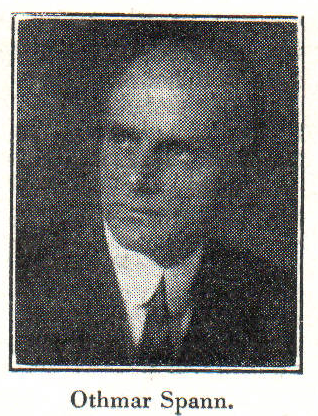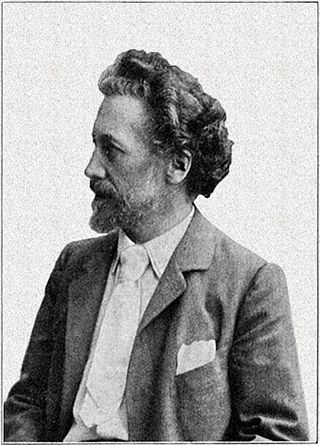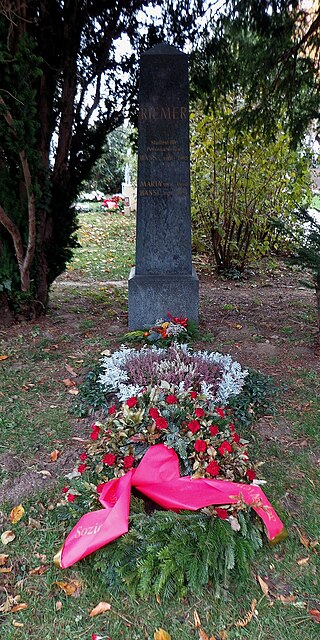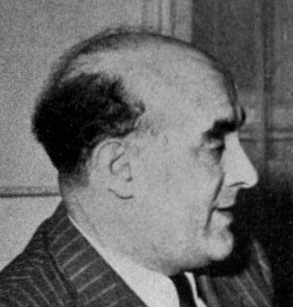Related Research Articles

Othmar Spann was a conservative Austrian philosopher, sociologist and economist. His radical anti-liberal and anti-socialist views, based on early 19th century Romantic ideas expressed by Adam Müller et al. and popularized in his books and lecture courses, helped antagonise political factions in Austria during the interwar years.

Austrian Nazism or Austrian National Socialism was a pan-German movement that was formed at the beginning of the 20th century. The movement took a concrete form on 15 November 1903 when the German Worker's Party (DAP) was established in Austria with its secretariat stationed in the town of Aussig. It was suppressed under the rule of Engelbert Dollfuss (1932–34), with its political organization, the DNSAP banned in early 1933, but was revived and made part of the German Nazi Party after the German annexation of Austria in 1938.

Erhard Busek was an Austrian politician from the Christian-conservative People's Party (ÖVP). Throughout his political career, he was widely regarded as one of the leaders of the party's liberal wing. He was coordinator of the South-Eastern Cooperative Initiative (SECI) and chairman of the Institute for the Danube Region and Central Europe.

The Federation of Independents was a German nationalist and national-liberal political party in Austria active from 1949 to 1955. It was the predecessor of the Freedom Party of Austria (FPÖ).
Ludwig Merwart was an influential Austrian painter and graphic artist. He is an important representative of Tachism and was a major force in graphic arts and prints, especially after World War II. His work belongs to the most significant and interesting contributions to graphic arts in Austria to this day.

Karl-Markus Gauß is an Austrian contemporary writer, essayist and editor. He lives in Salzburg.
Georg Carl Stetter was an Austrian-German nuclear physicist. Stetter was Director of the Second Physics Institute of the University of Vienna. He was a principal member of the German nuclear energy project, also known as the Uranium Club. In the latter years of World War II, he was also the Director of the Institute for Neutron Research. After the war, he was dismissed from his university positions, and he then became involved in dust protection research. After his dismissal was overturned, he became Director of the First Physics Institute of the University of Vienna, and he began research on aerosols. In 1962, Stetter became a full Member of the Austrian Academy of Sciences. In that same year, the Academy established their Commission for Clean Air, and Stetter served as its chairman until 1985.
Prof. Otto Molden was an Austrian publicist, federalist and author of various books about European identity and history. He founded the European Forum Alpbach in 1945.
Franz Rosei is an Austrian sculptor and draughtsman. His brother is the writer Peter Rosei.

Carry Hauser, born Carl Maria Hauser, was an Austrian painter, stage set designer and poet.
Thomas Reinhold is an Austrian painter, one of the initiators of so-called “New Painting”.

Edmund Ritter von Hellmer, born Edmund Hellmer and ennobled in 1912, was an Austrian sculptor who worked in the styles of Historicism and Art Nouveau.

Jörg Mauthe (1924–1986) was an Austrian writer, journalist and broadcasting executive. For some years he was prominent in the city politics of Vienna.

Franz Anton von Harrach zu Rorau was appointed coadjutor of Vienna and Titular Bishop of Epiphania in Syria in 1701, was from 1702 to 1705 Prince-Bishop of Vienna, 1705 coadjutor of Salzburg, and ruled from 1709 to 1727. He was considered one of the most notable Prince-Archbishops of Salzburg.

Hans Riemer was an Austrian politician of the Social Democratic Party of Austria (SPÖ). From 1949 to 1956 he was a member of the Bundesrat and from 1956 to 1963 a member of the city council of Vienna.

Erich Schenk was an Austrian musicologist and music historian.

Viktor Matejka was a Viennese politician and writer.
Franz Samohyl was an Austrian violinist, concertmaster of the Vienna State Opera and academic teacher.

Rudolf Kalmar was an Austrian journalist and author.
References
- ↑ "Dr. Viktor Reimann .... Redakteur". Republik Österreich, Parlamentsdirektion. 14 October 1996. Retrieved 15 June 2019.
- 1 2 3 4 "Viktor Reimann, österreichischer Politiker". Munzinger Archiv GmbH, Ravensburg. Retrieved 15 June 2019.
- 1 2 3 4 5 6 7 8 Wien Geschichte Wiki-Bearbeiter (Versionskennung: 245605) (7 February 2017). "Reimann Viktor, * 25. Jänner 1915 Wien, † 7. Oktober 1996 Wien, Historiker, Journalist, Kunstkritiker" . Retrieved 15 June 2019.
- ↑ "Viktor Reimann". LePenseur. 25 January 2015. Retrieved 15 June 2019.
- 1 2 Christian Pape (author); Brigitte Mihok (editor-compiler) (28 August 2013). Die Juden in Österreich (Viktor Reimann, 1974). pp. 325–326. ISBN 978-3-11-030535-7.
{{cite book}}:|author1=has generic name (help);|work=ignored (help) - ↑ "Scholz Roman (Karl), Can Reg, Priester, Widerstandskämpfer und Schriftsteller" (PDF). Österreichisches Biographisches Lexikon 1815-1950. Österreichischen Akademie der Wissenschaften, Wien. Retrieved 20 February 2018.
- ↑ Rolf Steininger; Günter Bischof; Michael Gehler (2002). Austria in the Twentieth Century. Transaction Publishers. pp. 146–147. ISBN 978-0-7658-0175-3.
- ↑ Reinhold Wagnleitner (author); Diana M. Wolf (translator) (9 November 2000). United States Press Politics in Austria. p. 88. ISBN 978-0-8078-6613-9.
{{cite book}}:|author1=has generic name (help);|work=ignored (help) - ↑ David Art (2011). Austria's "Third Lager". p. 116. ISBN 978-1-139-49883-8.
{{cite book}}:|work=ignored (help) - ↑ Christian Pape (author); Brigitte Mihok (editor-compiler) (2015). Verband der Unabhängigen (Österreich). pp. 288–289. ISBN 978-3-11-037945-7.
{{cite book}}:|author1=has generic name (help);|work=ignored (help) - ↑ Ernst Hanisch; Herbert Dachs; Robert Kriechbaumer (1997). Die Salzburger Partein seit 1945. pp. 266–271. ISBN 978-3-205-98702-4.
{{cite book}}:|work=ignored (help) - ↑ Brigitte Bailer-Galanda; Wolfgang Neugebauer. "Right-Wing Extremism: History, Organisations, Ideology". (Stiftung Dokumentationsarchiv des österreichischen Widerstandes / Anti-Defamation League (ed.): Brigitte Bailer-Galanda / Wolfgang Neugebauer, Incorrigibly Right. Right-Wing Extremists, "Revisionists" and Anti-Semites in Austrian Politics Today, Vienna-New York 1996, p. 5-21). Archived from the original on 17 January 2010. Retrieved 16 June 2019.
- ↑ Doris Griesser (29 August 2018). "Die braunen Wurzeln der FPÖ". Die Entwicklung der Freiheitlichen hat die Wiener Zeithistorikerin Margit Reiter aufgearbeitet. Nun liegen erste Ergebnisse vor - derstandard.at/2000086222807/Die-braunen-Wurzeln-der-FPOe. STANDARD Medien AG (der Standard), Wien. Retrieved 16 June 2019.
- ↑ "Die Neue Front", 13 October 1951
- 1 2 Gert Mattenklott (author of this section); Ulrike Zitzlsperger (editor-compiler); John Warren (editor-compiler) (2008). Brecht und Eisler in Wien und Berlin. p. 274. ISBN 978-3-03911-853-3.
{{cite book}}:|author1=has generic name (help);|work=ignored (help) - ↑ Margit Roth (compiler); Peter F. Kramml (compiler); Erich Marx (compiler); Thomas Weidenholzer (compiler). "1. Dezember 1949 ... Neue VdU-Zeitung" (PDF). Chronik der Stadt Salzburg 1945–1955. p. 114. Retrieved 16 June 2019.
- ↑ Margit Roth (compiler); Peter F. Kramml (compiler); Erich Marx (compiler); Thomas Weidenholzer (compiler). "4. Februar 1949 .... "Verband der Unabhängigen" gegründet" (PDF). Chronik der Stadt Salzburg 1945–1955. p. 97. Retrieved 16 June 2019.
- ↑ Eva Holpfer (compiler). "VdU: Die neue Front". OeNB- Jubiläumsfonds- Projekt Nr. 8709 ... Diskussionen über die Volksgerichtsbarkeit: Teil 1: 1945 bis 1949. Austrian Research Agency for Post-War Justice / Forschungsstelle Nachkriegsjustiz (FStN). Retrieved 16 June 2019.
- ↑ "Meine Nazis sind keine Nazis". Der Spiegel (online). 15 September 1949. Retrieved 16 June 2019.
- ↑ Otto F. Beer (29 May 1964). "Es geht um die Wiener Burg". Saisongespräch in der österreichischen Hauptstadt: das Buch von Haeussermann. Die Zeit (online). Retrieved 16 June 2019.
- ↑ Fritz Hausjell (8 December 2005). "Braune Federn". Zum Ende des Gedenkjahres: Wie Nazi-Journalisten nach dem Krieg in Österreich erstaunliche Karrieren machen konnten. Die Zeit (online). Retrieved 16 June 2019.
- ↑ Alexander Pollak. "Konturen medialen Antisemitismus in Österreich" (PDF). Sekundärer Antisemitismus und die Neudefinition der öffentlichen Antisemitismusschwelle in den österreichischen Medien nach 1945. Verein Nationalsozialismus und Holocaust: Gedächtnis und Gegenwart, Bregenz. Retrieved 16 June 2019.
- ↑ Wolfgang Purtscheller: Aufbruch der Völkischen. Das braune Netzwerk. Picus-Verlag, Wien 1993, ISBN 3-85452-239-8, p. 418